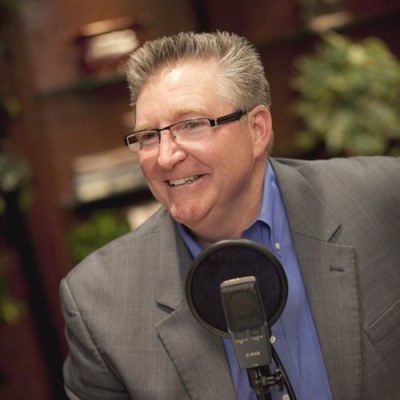Hurricane Relief Demonstrates Necessity of Private Sector

Hurricanes Harvey and Irma have made clear that many problems are too big for the government to tackle alone.
That's been one of the main takeaways from the two monster hurricanes that recently ravaged Texas, Florida and parts of the Caribbean. The devastation was so big that there was no way law enforcement and emergency workers — as brave and hard-working as they are — could tackle it alone.
Enter the citizen-hero.
From the Cajun Navy and quick-thinking social media gurus saving thousands, to neighbors helping a woman in labor, to relieved Puerto Ricans sending help to islands that bore the brunt of Irma's fury — everyday people have stepped up to help their fellow man in need.
And what's true for natural disasters is also true for victims of other catastrophes, like abandoned children from broken and neglected homes.
That reality is powerfully portrayed in "Mully," a new movie coming to theaters on Oct. 3, 4, and 5 only.
"Mully" shares the real-life story of Charles Mully, a man who has rescued tens of thousands of children who were living on the streets of Kenya.
Mr. Mully grew up in poverty. When he was only 6 years old, his family abandoned him, forcing him to live on the streets. But despite the overwhelming odds, Mully went on to marry and have a family — and his hard work and entrepreneurial spirit eventually helped him become a multi-millionaire. It was a lifestyle he and his family enjoyed and to which they grew accustomed.
But one day Charles looked around at children who were living through what he experienced — and, like the citizen-heroes of the recent hurricanes – his heart was moved to compassion. That compelled him to risk it all to help abandoned children and teens. He brought them into his home and raised them alongside his eight biological children.
As Mully's dreams for these children grew, so did his efforts.
Soon Mully, his wife and children, inspired by their Christian faith, were opening up centers around the country of Kenya, providing the children with education and life skills, and giving them medical care — and they're doing it in a way that's self-sustainable.
To date, Mully Children's Fund has helped more than 23,000 children. These kids went from the streets to the classroom, with many becoming lawyers, doctors, judges, architects, and teachers. Others have gone back to their villages, determined to help, serve and lift up others back home.
No government program can match that, and the reason is simple.
Bureaucracies can't give love; they can't encourage. They can't give a hug or hold a child when he cries.
That's not a criticism — it's simply acknowledging reality.
And that's why, when it all boils down, there's a lot we can all learn from the brave men and women who towed their fishing boats and kayaks down to a flooded city ready to save lives, and from the countless people of faith like Charles Mully who are sacrificing it all to make a difference.
And this is what they're teaching us:
Love your neighbor. Treat others as you'd like to be treated. Serve without expecting anything in return.
If we learn that lesson, and put it into practice, we'll soon see that no government program can come close to accomplishing what people willing to love sacrificially can do.





















